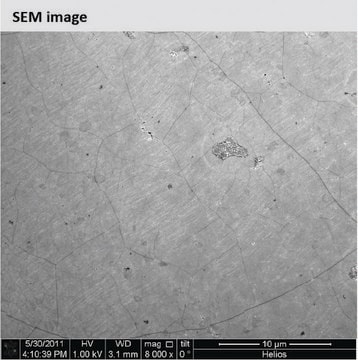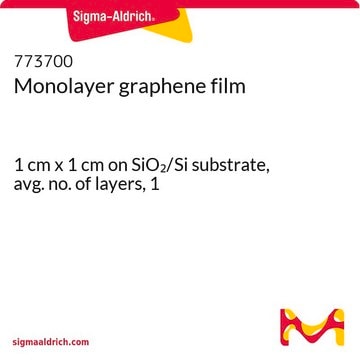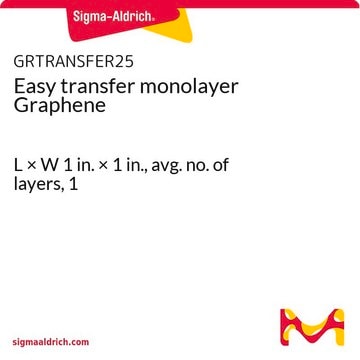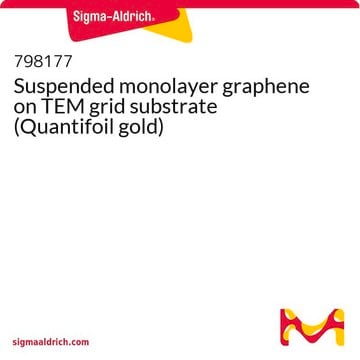799009
Graphene, monolayer film
1 in x 1 in on copper foil, avg. no. of layers, 1
Synonym(s):
Graphene/Cu
About This Item
Recommended Products
product name
Monolayer graphene film, 1 in x 1 in on copper foil, avg. no. of layers, 1
Quality Level
description
Coverage: >95%
FET Electron Mobility on Al2O3: 2;000 cm2/V·s
FET Electron Mobility on SiO2/Si (expected): 4; 000 cm2/V·s
Grain size: Up to 10 μm
Number of graphene layers: 1
Transparency: >97%
form
film
feature
avg. no. of layers 1
resistance
350 Ω/sq
L × W × thickness
1 in. × 1 in. × (theoretical) 0.245 nm, monolayer graphene film
1 in. × 1 in. × 18 μm, copper foil substrate
color
transparent
Looking for similar products? Visit Product Comparison Guide
General description
Transfer Method: Clean transfer method
Quality Control: Optical Microscopy & Raman checked
Application
Storage Class Code
11 - Combustible Solids
WGK
WGK 3
Flash Point(F)
Not applicable
Flash Point(C)
Not applicable
Choose from one of the most recent versions:
Already Own This Product?
Find documentation for the products that you have recently purchased in the Document Library.
Customers Also Viewed
Articles
The detection and quantification of biomarkers are essential for medical diagnostics, environmental monitoring, and bioresearch.
Catalytic water splitting produces hydrogen crucial for renewable energy, petroleum refining, and chemical industry applications like methanol production.
Catalytic water splitting produces hydrogen crucial for renewable energy, petroleum refining, and chemical industry applications like methanol production.
Catalytic water splitting produces hydrogen crucial for renewable energy, petroleum refining, and chemical industry applications like methanol production.
Our team of scientists has experience in all areas of research including Life Science, Material Science, Chemical Synthesis, Chromatography, Analytical and many others.
Contact Technical Service







